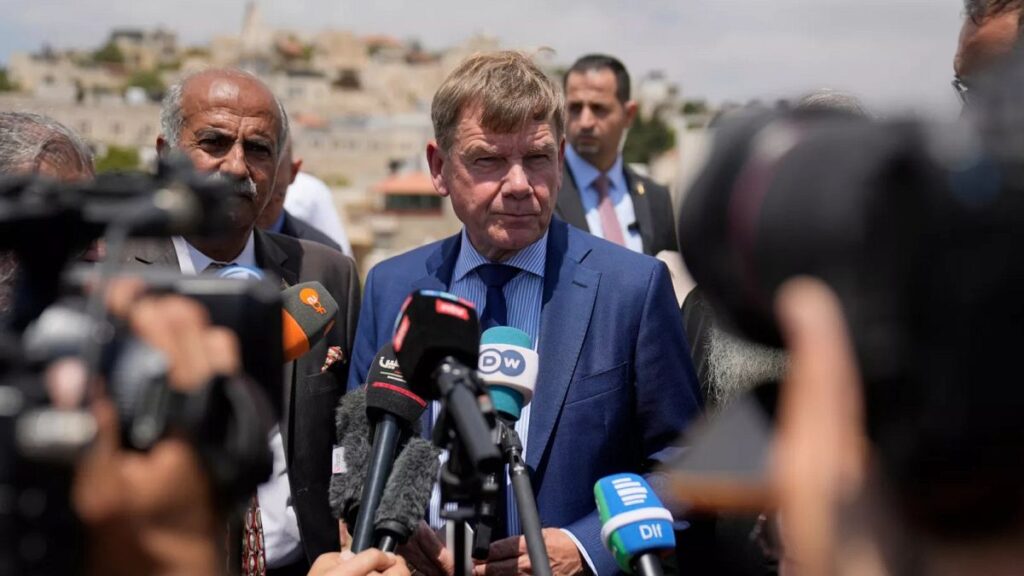By Euronews
Published on
•Updated
German Foreign Minister Johann Wadephul visited the Israeli-occupied West Bank on Friday, where he is expected to hold talks with Palestinian President Mahmoud Abbas in Ramallah.
The meeting is expected to address attacks by Israeli settlers on Palestinians and the plans being discussed in Israel to annex the territory. The Israeli Knesset recently signalled its support for a possible annexation in a resolution, a move that has met with sharp international criticism.
The German government is also firmly opposed to such a measure.
Wadephul arrived in Israel on Thursday, where he met with his Israeli counterpart Gideon Sa’ar and Prime Minister Benjamin Netanyahu.
In Jerusalem, Wadephul said Israel was in danger of becoming internationally isolated.
“I see it as Germany’s duty to do everything it can to prevent this,” he said.
He referred to Germany’s “never-ending historical obligation” for Israel’s security.
Both sides must take action, the foreign minister said.
“My mission here today was to tell the Israeli side that they must act now and not just at some point.”
He added: “We need clarity – also from Israel – that no policy of expulsion and no policy of active annexation is being pursued.”
What is needed is for the remaining hostages to be released from Gaza, where they are being held captive by the militant group Hamas.
“It is time to end this war,” Wadephul said in a call directed “first and foremost to the Hamas terrorist organisation.”
German aid for Gaza
Amid the dire humanitarian crisis in Gaza, Wadephul pledged additional aid during a meeting with representatives of the United Nations Office for the Coordination of Humanitarian Affairs (OCHA) in Jerusalem.
He announced that Germany would provide the World Food Programme (WFP) with a further €5 million. With these funds, the WFP should be able to provide food and put bakeries and soup kitchens back into operation in order to distribute bread and hot meals.
As Wadephul explained, the daily ceasefires established by Israel in parts of the Gaza Strip will be used to distribute relief supplies via the UN.
The German government is also supporting the construction of a Maltese field hospital in Gaza City to provide urgently needed basic medical care.
Meanwhile, CSU Secretary-General Martin Huber has categorically ruled out sanctions against Israel by the German government.
In an interview with Redaktionsnetzwerk Deutschland, Huber said that criticising the Israeli government is legitimate, “but sanctions between friends are out of the question.”
Huber also rejects measures such as entry bans, such as those imposed by the Netherlands on the far-right Israeli ministers Bezalel Smotrich and Itamar Ben-Gvir.
Berlin also hasn’t joined major allies France, Britain, and Canada in saying it will recognise a Palestinian state in September. But in a statement ahead of his departure Thursday, Wadephul underlined Germany’s position that a two-state solution is “the only way” to ensure a future in peace and security for people on both sides.
“For Germany, the recognition of a Palestinian state stands rather at the end of the process. But such a process must begin now. Germany will not move from this aim,” Wadephul said.
US President Donald Trump’s special envoy Steve Witkoff also arrived in Israel on Thursday to discuss the worsening humanitarian situation in Gaza.
Witkoff and US Ambassador Mike Huckabee will inspect food distribution in Gaza on Friday, the White House said.
Read the full article here

